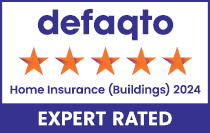SHARED OWNERSHIP SCHEMES
The Government’s Help to Buy mortgage guarantee closed to applications at the end of October 2022. Many UK residents are still in need of financial help to buy a home though, so what options are available to you?
Help to Buy equity loan
For most hopeful home hunters, getting a sufficient deposit together to be able to make an offer is that hardest part. A low-interest Government loan towards your deposit could be the answer.
To get started, you will need to have enough capital to put down a 5% deposit, as well as arrange a repayment mortgage of at least 25% of the property purchase price. The Government will then lend you a further 20%, or 40% if you are in London.
In addition to the finances, there are some additional criteria that must be filled in regards to eligibility. Namely, the house you buy must be:
- A new build
- Sold by a Help to Buy registered homebuilder
- The only home you own and live in
- Not lived in by anyone prior to you buying it
Depending on the region of the property, there are maximum property prices. You are allowed to purchase a home up to and including the maximum property price limit. The maximum prices are as follows:
| Area | Price Limit |
|---|---|
| North East | £186,100 |
| North West | £224,400 |
| Yorkshire and the Humber | £228,100 |
| East Midlands | £261,900 |
| West Midlands | £255,600 |
| East of England | £407,400 |
| London | £600,000 |
| South East | £437,600 |
| South West | £349,000 |
RE-PAYING THE LOAN
As with your mortgage, you will need to set up monthly repayments for your equity loan, but only in the sixth year after your purchase. In your sixth year you will be charged 1.75% of the loan’s value. You are obliged to pay back the loan after 25 years (or when you sell your home).
Shared ownership
One scheme growing popularity now that the Help to Buy mortgage has ended is buying through shared ownership. In this situation, you can buy a share of a property (25% 10% -75%) and pay rent on the remaining share. Shared ownership is available through housing associations in your area of the UK.
To apply through your local housing associations, you must show that you:
- Have a household income of £80,000 a year or less, or £90,000 a year or less in London.
- Cannot afford the deposit or mortgage payments for the property you wish to purchase
You also need to fit one of the following requirements:
- You’re a first time buyer
- You have previously owned a property but can no longer afford to buy
- You’re an existing shared homeowner
- You have a household income of less than £80,000 per annum, or £90,000 if in London
- You’re forming a new household (such as after a relationship breakdown)
- You currently own a home but cannot afford a new one
Once you are the homeowner you can choose to buy more shares in the property, which will reduce the rent you pay. The cost of buying more shares will be determined by how much your home is worth, changes in property prices in your area as well as inflation.
The process of buying more shares is referred to as staircasing. Determining the cost of more shares will usually mean getting your property valued, in which case you would be liable for the valuer’s fees.
SELLING YOUR PROPERTY ON
The housing association has right of first refusal if you decide to sell your house. This means that they can buy your share of the property back. If they choose not to then you can seek alternate buyers, although the housing association also has the right to find buyers.
If you have bought out the housing association and own the property outright, then you can sell it on the open market.
Note: Shared ownership properties are always leasehold, and your landlord can choose to sell on the lease. As tenant, you would usually also be offered first right of refusal in this case.
There are also variations of these schemes available for council tenants, housing association tenants, older people and disabled people.




